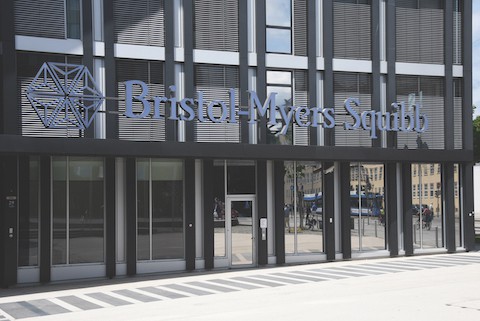
Bristol Myers Squibb (BMS) has announced positive results from its phase 3 study evaluating Krazati (adagrasib) as a monotherapy in patients with pre-treated KRAS G12C (a rare protein)-mutated locally advanced or metastatic non-small cell lung cancer (NSCLC).
Results from the KRYSTAL-12 study showed that the monotherapy met its primary endpoint of progression-free survival (PFS) and the key secondary endpoint of overall response rate (ORR).
Lung cancer is estimated to have affected more than two million people worldwide in 2020, according to the World Cancer Research Fund International.
KRAS G12C mutations occur in approximately 14% of NSCLC cases, the most common form of lung cancer, where cancers of the cells lining the surface of the lung airways cause abnormal cells to rapidly reproduce.
The open-label, multicentre, randomised study evaluated Krazati versus standard-of-care chemotherapy alone in adult patients with KRAS G12C-mutated NSCLC.
The oral small-molecule inhibitor of KRAS G12C works to sustain target inhibition to treat KRAS G12C-mutated cancers by attaching to the KRAS G12C protein to slow down or halt cancer growth.
Results from the ongoing trial showed that Krazati demonstrated a statistically significant and clinically meaningful benefit in PFS and ORR compared to chemotherapy as a second-line or later treatment for these patients, with no new safety signals identified.
Abderrahim Oukessou, vice president, BMS, commented: “[The] news is an important reinforcement of the power of targeted therapy for patients with locally advanced or metastatic KRAS G12C-mutated lung cancer.
“We are encouraged by the results from KRYSTAL-12 and look forward to helping more patients with KRAS G12C-mutated lung cancer.”
Krazati has already been approved by the US Food and Drug Administration, the Medicines and Healthcare products Regulatory Agency and, most recently, the European Commission as a targeted treatment for certain patients with KRAS G12C-mutated NSCLC.
In March, BMS announced positive phase 3 results from its CheckMate-9DW trial evaluating Opdivo (nivolumab) in combination with Yervoy (ipilimumab) to treat patients with advanced hepatocellular carcinoma, an advanced form of liver cancer, who have not received prior systemic therapy.




